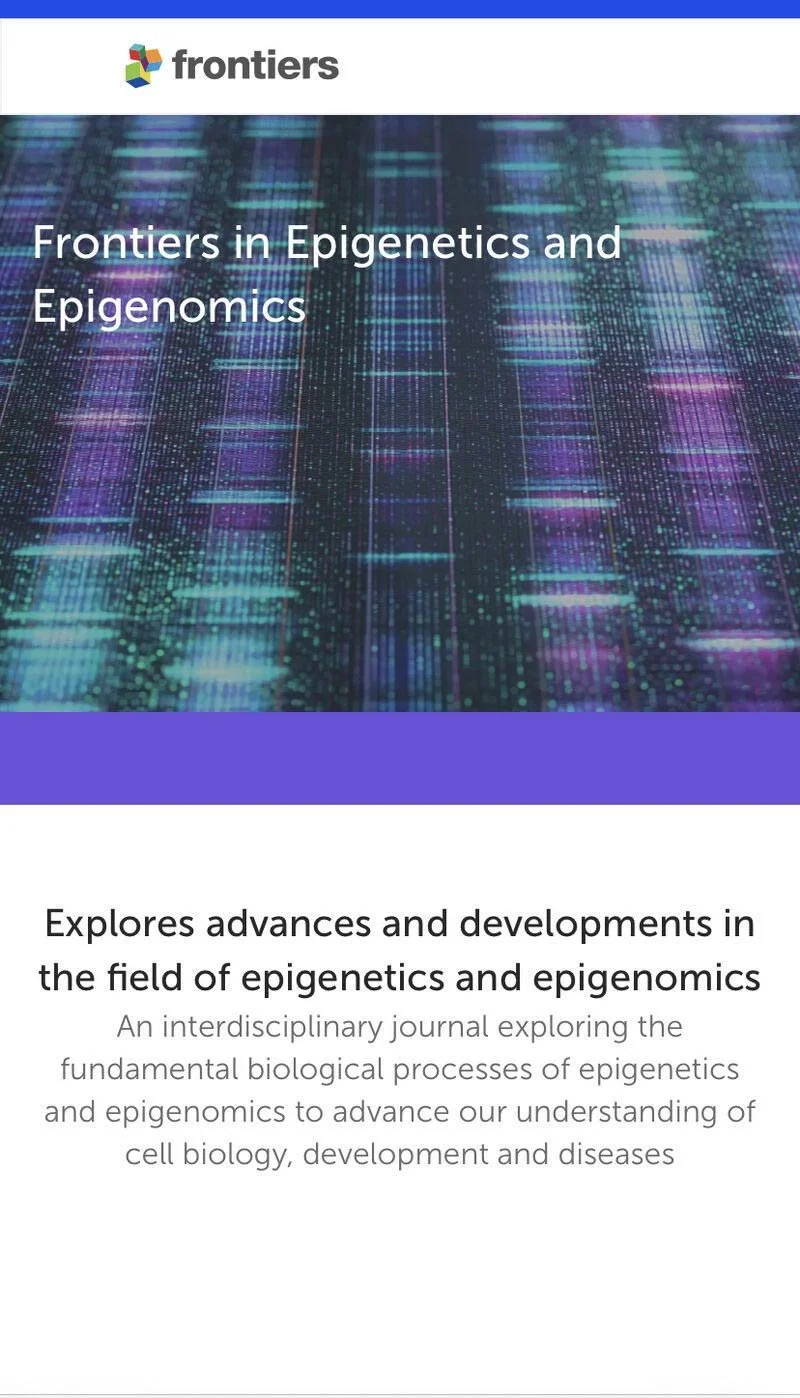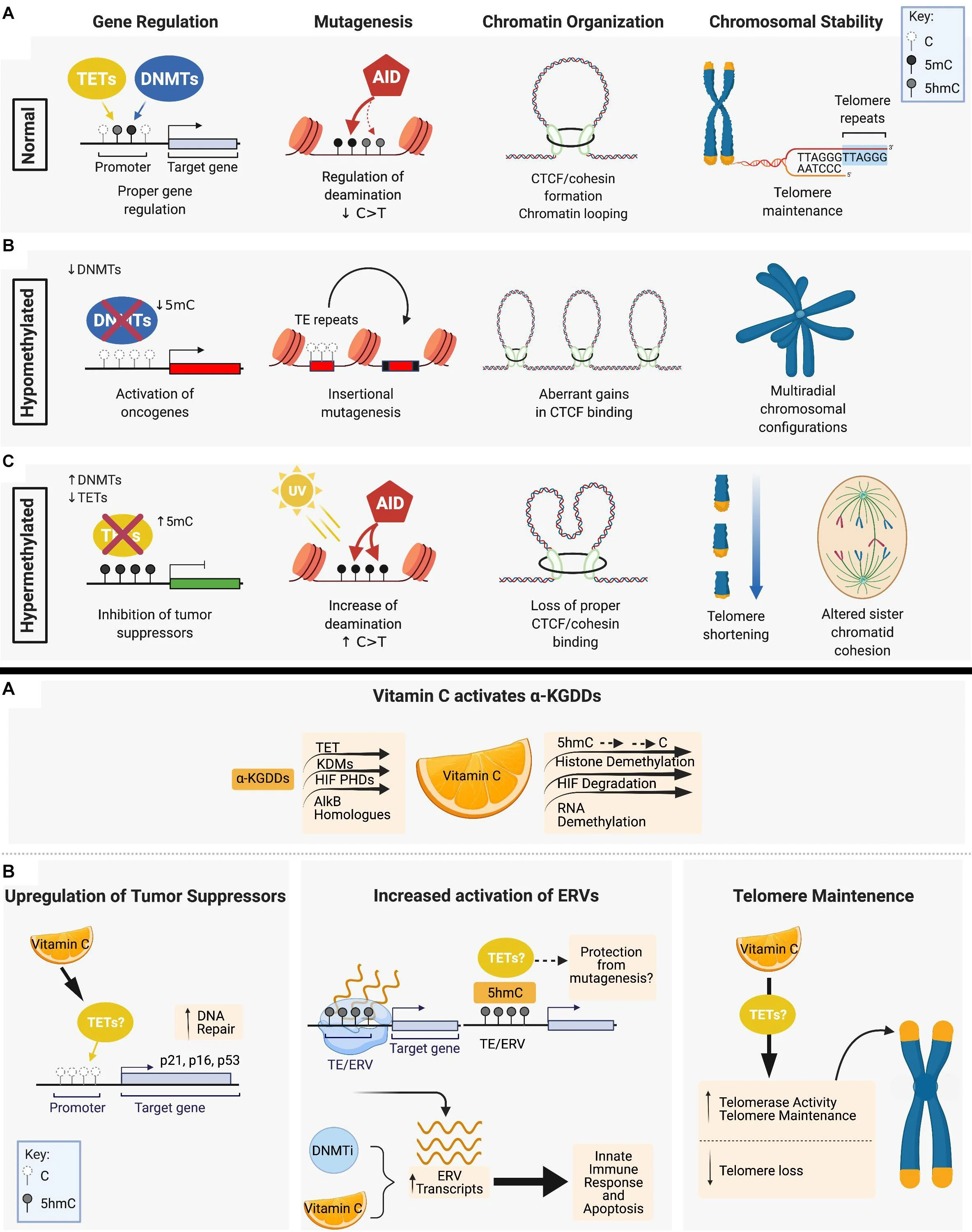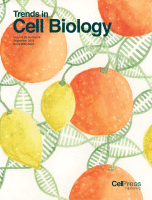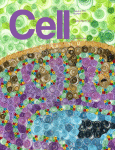Cimmino Lab Publications
Elevated B12 serum levels are associated with the presence of clonal hematopoiesis
2025 Blood Neoplasia. Varun Gupta,, Peter D. Lyon, Aristeidis G. Telonis, Marina Konopleva, Luisa Cimmino
Abstract: Recent large population studies in Europe and China report an association between high B12 serum levels and increased all-cause mortality, including heart disease, solid cancers, and myeloid malignancies. Importantly, participants in many of these studies were cancer free at the time of initial B12 screening. Normal B12 serum levels range from 200 to 900 pg/mL, with elevated levels defined as >1000 pg/mL. Elevated serum B12 can result from supplementation7 or indicate underlying conditions such as liver disease, chronic renal failure, autoimmune disorders, and cancer. In patients with cancer, higher serum B12 levels correlate with increased tumor mass and worse prognoses, and myeloid malignancies show the strongest association between B12 levels and survival outcome. Persistent elevated B12 over 5 years, rather than a transient elevation that can occur normally in response to infection, has also been linked to an increased cancer incidence in a healthy older cohort. Whether elevated B12 serum levels are associated with clonal hematopoiesis (CH), a precursor state that predisposes to hematological malignancy, has not been studied.
MICRONUTRIENT REGULATION OF THE DNA METHYLOME
2024 Frontiers in Epigenetics and Epigenomics. Tiffany Leesang, Peter Lyon, Joey Pinzone, Luisa Cimmino
Abstract: The formation, inheritance, and removal of DNA methylation in the genome of mammalian cells is directly regulated by two families of enzymes–DNA methyltransferases (DNMTs) and Ten-Eleven Translocation proteins (TETs). DNMTs generate and maintain the inheritance of 5-methylcytosine (5mC), which is the substrate targeted by the TET enzymes for conversion to 5-hydroxymethylcytosine (5hmC) and its downstream oxidized derivatives. The activity of DNMT and TET is dependent on the availability of micronutrients and metabolite co-factors, including essential vitamins, amino acids, and trace metals, highlighting how DNA methylation levels can be directly enhanced, suppressed, or remodeled via metabolic and nutritional perturbations. Dynamic changes in DNA methylation are required during embryonic development, lineage specification, and maintenance of somatic cell function that can be fine-tuned based on the influence of essential micronutrients. As we age, DNA methylation and hydroxymethylation levels drift in patterning, leading to epigenetic dysregulation and genomic instability that underlies the formation and progression of multiple diseases including cancer. Understanding how DNA methylation can be regulated by micronutrients will have important implications for the maintenance of normal tissue function upon aging, and in the prevention and treatment of diseases for improved health and lifespan.
OXIDIZED mC MODULATES SYNTHETIC LETHALITY TO PARP INHIBITORS FOR THE TREATMENT OF LEUKEMIA
2023 Cell Reports. Brabson, JP, et al.
Abstract: TET2 haploinsufficiency is a driving event in myeloid cancers and is associated with a worse prognosis in patients with acute myeloid leukemia (AML). Enhancing residual TET2 activity using vitamin C increases oxidized 5-methylcytosine (mC) formation and promotes active DNA demethylation via base excision repair (BER), which slows leukemia progression. We utilize genetic and compound library screening approaches to identify rational combination treatment strategies to improve use of vitamin C as an adjuvant therapy for AML. In addition to increasing the efficacy of several US Food and Drug Administration (FDA)-approved drugs, vitamin C treatment with poly-ADP-ribosyl polymerase inhibitors (PARPis) elicits a strong synergistic effect to block AML self-renewal in murine and human AML models. Vitamin-C-mediated TET activation combined with PARPis causes enrichment of chromatin-bound PARP1 at oxidized mCs and γH2AX accumulation during mid-S phase, leading to cell cycle stalling and differentiation. Given that most AML subtypes maintain residual TET2 expression, vitamin C could elicit broad efficacy as a PARPi therapeutic adjuvant.
EPIGENETIC REGULATION OF GENOMIC STABILITY BY VITAMIN C
2021 Frontiers in Genetics. John Brabson, Tiffany Leesang, Sofia Mohammad, Luisa Cimmino
Abstract: DNA methylation plays an important role in the maintenance of genomic stability. Ten-eleven translocation proteins (TETs) are a family of iron (Fe2+) and α-KG -dependent dioxygenases that regulate DNA methylation levels by oxidizing 5-methylcystosine (5mC) to generate 5-hydroxymethylcytosine (5hmC), 5-formylcytosine (5fC), and 5-carboxylcytosine (5caC). These oxidized methylcytosines promote passive demethylation upon DNA replication, or active DNA demethylation, by triggering base excision repair and replacement of 5fC and 5caC with an unmethylated cytosine. Several studies over the last decade have shown that loss of TET function leads to DNA hypermethylation and increased genomic instability. Vitamin C, a cofactor of TET enzymes, increases 5hmC formation and promotes DNA demethylation, suggesting that this essential vitamin, in addition to its antioxidant properties, can also directly influence genomic stability. This review will highlight the functional role of DNA methylation, TET activity and vitamin C, in the crosstalk between DNA methylation and DNA repair.
B Vitamins and One-Carbon Metabolism: Implications in Human Health and Disease
2020 Nutrients. Peter Lyon, Victoria Strippoli, Byron Fang, Luisa Cimmino
Abstract: Vitamins B9 (folate) and B12 are essential water-soluble vitamins that play a crucial role in the maintenance of one-carbon metabolism: a set of interconnected biochemical pathways driven by folate and methionine to generate methyl groups for use in DNA synthesis, amino acid homeostasis, antioxidant generation, and epigenetic regulation. Dietary deficiencies in B9 and B12, or genetic polymorphisms that influence the activity of enzymes involved in the folate or methionine cycles, are known to cause developmental defects, impair cognitive function, or block normal blood production. Nutritional deficiencies have historically been treated with dietary supplementation or high-dose parenteral administration that can reverse symptoms in the majority of cases. Elevated levels of these vitamins have more recently been shown to correlate with immune dysfunction, cancer, and increased mortality. Therapies that specifically target one-carbon metabolism are therefore currently being explored for the treatment of immune disorders and cancer. In this review, we will highlight recent studies aimed at elucidating the role of folate, B12, and methionine in one-carbon metabolism during normal cellular processes and in the context of disease progression.
Reprogramming the epigenome with vitamin c
2019 Frontiers in Cell and Developmental Biology. Taylor Lee Chong, Emily L Ahearn, Luisa Cimmino
Abstract: The erasure of epigenetic modifications across the genome of somatic cells is an essential requirement during their reprogramming into induced pluripotent stem cells (iPSCs). Vitamin C plays a pivotal role in remodeling the epigenome by enhancing the activity of Jumonji-C domain-containing histone demethylases (JHDMs) and the ten-eleven translocation (TET) proteins. By maintaining differentiation plasticity in culture, vitamin C also improves the quality of tissue specific stem cells derived from iPSCs that are highly sought after for use in regenerative medicine. The ability of vitamin C to potentiate the activity of histone and DNA demethylating enzymes also has clinical application in the treatment of cancer. Vitamin C deficiency has been widely reported in cancer patients and has recently been shown to accelerate cancer progression in disease models. Therapies involving high-dose vitamin C administration are currently gaining traction in the treatment of epigenetic dysregulation, by targeting aberrant histone and DNA methylation patterns associated with cancer progression.
Relevant Publications
Vitamin C in Stem Cell Reprogramming and Cancer
2018 Trends in Cell Biology. Cimmino L, Neel BG, Aifantis I
Abstract: Vitamin C is an essential dietary requirement for humans. In addition to its known role as an antioxidant, vitamin C is a cofactor for Fe2+- and α-ketoglutarate-dependent dioxygenases (Fe2+/α-KGDDs) which comprise a large number of diverse enzymes, including collagen prolyl hydroxylases and epigenetic regulators of histone and DNA methylation. Vitamin C can modulate embryonic stem cell (ESC) function, enhance reprogramming of fibroblasts to induced pluripotent stem cells (iPSCs), and hinder the aberrant self-renewal of hematopoietic stem cells (HSCs) through its ability to enhance the activity of either Jumonji C (JmjC) domain-containing histone demethylases or ten-eleven translocation (TET) DNA hydroxylases. Given that epigenetic dysregulation is a known driver of malignancy, vitamin C may play a novel role as an epigenetic anticancer agent.
Restoration of TET2 function blocks aberrant self-renewal and leukemia progression
2017 Cell. Cimmino L, et. al.
Abstract: Loss-of-function mutations in TET2 occur frequently in patients with clonal hematopoiesis, myelodysplastic syndrome (MDS), and acute myeloid leukemia (AML) and are associated with a DNA hypermethylation phenotype. To determine the role of TET2 deficiency in leukemia stem cell maintenance, we generated a reversible transgenic RNAi mouse to model restoration of endogenous Tet2 expression. Tet2 restoration reverses aberrant hematopoietic stem and progenitor cell (HSPC) self-renewal in vitro and in vivo. Treatment with vitamin C, a co-factor of Fe2+ and α-KG-dependent dioxygenases, mimics TET2 restoration by enhancing 5-hydroxymethylcytosine formation in Tet2-deficient mouse HSPCs and suppresses human leukemic colony formation and leukemia progression of primary human leukemia PDXs. Vitamin C also drives DNA hypomethylation and expression of a TET2-dependent gene signature in human leukemia cell lines. Furthermore, TET-mediated DNA oxidation induced by vitamin C treatment in leukemia cells enhances their sensitivity to PARP inhibition and could provide a safe and effective combination strategy to selectively target TET deficiency in cancer.
TET1 is a tumor suppressor of hematopoietic malignancy
2015 Nat. Immunol. Cimmino L, et. al.
Abstract: The methylcytosine dioxygenase TET1 ('ten-eleven translocation 1') is an important regulator of 5-hydroxymethylcytosine (5hmC) in embryonic stem cells. The diminished expression of TET proteins and loss of 5hmC in many tumors suggests a critical role for the maintenance of this epigenetic modification. Here we found that deletion of Tet1 promoted the development of B cell lymphoma in mice. TET1 was required for maintenance of the normal abundance and distribution of 5hmC, which prevented hypermethylation of DNA, and for regulation of the B cell lineage and of genes encoding molecules involved in chromosome maintenance and DNA repair. Whole-exome sequencing of TET1-deficient tumors revealed mutations frequently found in non-Hodgkin B cell lymphoma (B-NHL), in which TET1 was hypermethylated and transcriptionally silenced. Our findings provide in vivo evidence of a function for TET1 as a tumor suppressor of hematopoietic malignancy.








